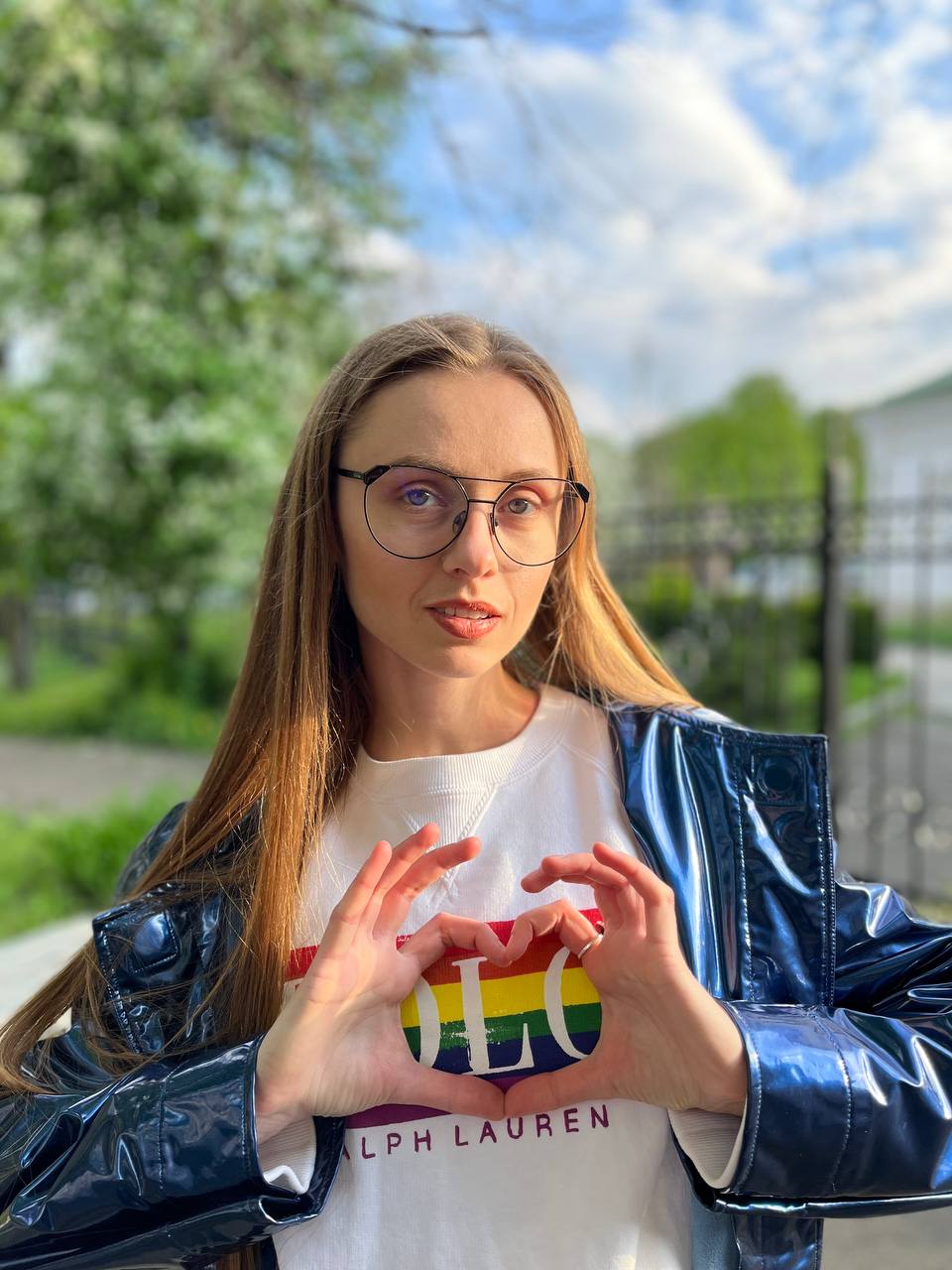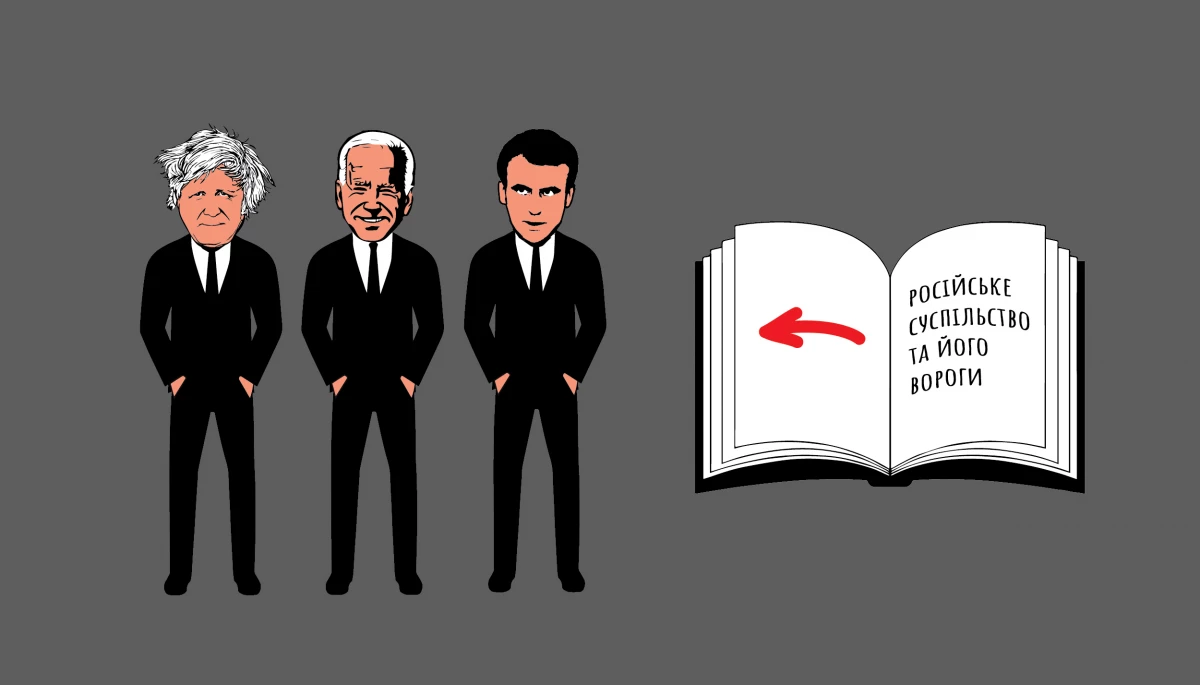

Українською читайте тут.
Throughout its history, Russia has engaged in warfare with various entities, driven by territorial ambitions and perceived threats, both real and imagined. Over the centuries, the identities of these "external enemies" have shifted. During the 16th-18th centuries, the Ottoman Empire was a major rival as Moscow sought dominance in Eastern Europe, the Caucasus, and Central Asia. Later, in the 18th century, Sweden became a prominent adversary during the Great Northern War, as Russia aimed to expand its influence in Northern Europe and gain access to the Baltic Sea. The Napoleonic Wars saw Russia opposing Napoleon Bonaparte's ambitions in the early 19th century, while in the latter half of the 19th century, the British Empire emerged as a key antagonist in the competition for influence in Central Asia, giving rise to the expression "the Englishwoman sh*ts."
Following World War II, the Soviet system found itself at odds with the United States and its NATO allies. This hostility towards NATO persisted, leading to conflicts, arms races, and political confrontations. With Russia's recent full-scale invasion of Ukraine, Moscow now faces opposition from a coalition of over 40 economically developed democratic nations, representing roughly 60% of the world's GDP. This coalition provides military and economic support to Ukraine through the Rammstein format. However, Russian propaganda seeks to obscure this opposition from the civilized West by portraying a convenient enemy and discrediting them extensively. Historical allusions to past geopolitical adversaries of Russia are often employed for this purpose. In just two years of full-scale war, the perception of the primary adversary has undergone several significant shifts. This article explores how propaganda manipulates the image of the "external enemy" and examines the dynamic and personalized nature of this portrayal.
A fundamental aspect of propaganda is the construction of an "external enemy." By positioning a particular group as the adversary, individuals are unwittingly drawn into a dichotomy of "us versus them," instinctively fostering animosity towards the "other" while promoting unity with the "in-group." This tactic of "othering" has been employed throughout history, from pre-modern societies to contemporary formations. The concept of the "other" is deeply ingrained in human self-perception, extensively explored in the field of phenomenology within philosophy. Russian agitprop utilizes a straightforward psychological technique known as "othering" to cultivate a national stereotype, asserting that every Russian has an enemy beyond the geographical boundaries of the country's life space. This approach is advantageous because it shifts blame for internal problems and failures onto an external scapegoat, thereby absolving the authorities of responsibility. Additionally, it fosters a sense of unity among Russians, rallying them against a common foe. By demonizing the external enemy, attention is diverted from genuine internal issues such as economic crises, social insecurity, corruption, or authoritarian tendencies.
The USA as "the leader of anti-Russian policy in the world"
In the spring of 2023, Moscow endorsed a new foreign policy concept for Russia. This document depicts the United States as the primary instigator, organizer, and executor of an aggressive anti-Russian agenda globally, posing the main security risk to both Russia and international peace. Unlike previous versions from 1993, 2000, 2008, 2013, and 2016, this updated Concept adopts a more adversarial stance towards the West and makes direct references to the Cold War era. Previous iterations of Russia's foreign policy concepts maintained a more restrained diplomatic tone towards Washington, stressing the importance of deepening cooperation and expressing "concern" about the prevailing direction of American policy. However, the Kremlin now asserts that Russia's survival as a distinct and independent civilization necessitates a geopolitical departure from the unipolar world dominated by the United States. Furthermore, the document underscores that the confrontation between Russia and the West is increasingly evident and ideological, with the rejection of neoliberalism forming the basis of Russian foreign policy. According to the 2023 Foreign Policy Concept, Russia identifies the USA as the primary driver behind aggressive policies targeting it. In the Russian narrative, other democracies are depicted as mere puppets of the US, conducting anti-Russian policies at Washington's behest or under its coercion. In a statement from the fall of 2022, Putin remarked, "The USA continues to effectively occupy Germany, Japan, the Republic of Korea, and other countries. Yet, they cynically refer to them as equal allies..."
Since 2006, the Levada-Center sociological service has been regularly conducting surveys on public opinion regarding the "friends" and "enemies" of Russia, with the United States consistently topping the list of perceived adversaries. From the mid-2000s until 2013, between 26% and 45% of Russians identified the United States as their "most unfriendly" country. However, with the onset of the war against Ukraine, the annexation of Crimea, and armed aggression in the east, this figure surged to nearly 70%. Subsequently, it gradually declined to pre-war levels, although during full-scale invasions, it remained above 70%.
This perception of hostility towards the United States was perpetuated through various means, including the portrayal of American leaders as villains, the depiction of US military actions as expansionist threats or imperialistic intentions, and the portrayal of American culture as decadent and primitive. Additionally, conspiracy theories played a role in reinforcing this stereotype. For instance, amid worsening relations between Moscow and Washington in the 2010s due to aggression against Ukraine and subsequent anti-Russian sanctions, a meme emerged suggesting that "Obama steals the forest" or "Obama sh*ts at the front door," highlighting the irony of blaming the United States for internal issues in Russian society. A notable response to American sanctions was a public movement called "Putin's Squads" ("Otryady Putina"), which organized a flash mob where participants destroyed iPhones to demonstrate that patriotism and conscious consumption outweigh the allure of "American civilization."
As the full-scale invasion commenced, Russian propaganda intensified its focus on the age of American President Joe Biden. The propaganda aimed to highlight Biden's purported poor health and alleged cognitive decline due to his advanced age. This portrayal sought to depict Biden as an inadequate leader controlled by unidentified forces within the enemy camp. Deputy Chairman of the Russian Security Council Dmitry Medvedev echoed the frequent Russian assertions regarding Biden's supposed dementia, commenting on Biden's calls to Congress to support a military financial aid package for Ukraine. These narratives often emphasized Biden's age-related health issues, alleged corruption within his family, the influence of the deep state, and internal divisions within the United States between Democrats and conservatives, as well as between states and the federal government.
UK, which is not afraid of escalation
Following the full-scale invasion, a surge of hostility towards the UK emerged, with the Russian side accusing then British Prime Minister Boris Johnson of allegedly sabotaging the Istanbul talks in spring 2022. Propagandists portrayed London as bearing primary responsibility for prolonging the war and increasing its casualties. Russian Foreign Ministry spokesperson Maria Zakharova commented on Ukrainian negotiator David Arahamiya's admission that Johnson discouraged Kyiv from trusting Moscow and conceding to some demands, suggesting that such statements revealed Kyiv's complete dependence on Anglo-Saxon puppeteers who wield influence as they please. This manipulation of peace talk rhetoric by the Kremlin is further discussed here.
Since then, Johnson has emerged as one of the primary anti-heroes in the Russian information sphere. Dmytro Medvedev, as previously mentioned, proposed sending Johnson to a psychiatric hospital for suggesting Kyiv's NATO membership without additional conditions, stating, "He should be admitted, a retired fool, to a psychiatric hospital without conditions. That's where he will be able to portray a cool guy among his people who will demand to start the third world war."
A shift in emphasis became apparent in the Kremlin's nuclear threats, increasingly aimed at London. In May 2022, Dmitry Kiselyov, host of the state TV channel "Russia-1," threatened England with destruction during prime time: "One launch, Boris, and England is gone once and for all." He illustrated his threats with a computer animation of a Russian nuclear attack on Great Britain and Ireland. Andrey Gurulev, a State Duma deputy and former deputy commander of the Southern Military District of the Russian Armed Forces, later insisted that Moscow should target London with the first nuclear strike: "The first strike will be on London. Undoubtedly, the threat to the world comes from the Anglo-Saxons." Alexei Zhuravlev, another State Duma deputy and leader of the Rodina party, echoed similar rhetoric on TV, saying, "One Sarmat missile — there were the British Isles, and now they're gone."
However, these threats proved ineffective. Despite the aggressive rhetoric, Great Britain, under a new prime minister, continued to demonstrate leadership in military support for Ukraine. London was the first to provide Ukraine with main battle tanks, long-range Storm Shadow cruise missiles, and to sign a security agreement with Kyiv.
"Macron's bluff sharpens rhetoric"
In the late Soviet period, France positioned itself as the friendliest country within the otherwise hostile capitalist NATO bloc. This was largely due to the foreign policy of Charles de Gaulle, the first president of the Fifth Republic, who sought strategic autonomy from US policy and even withdrew France from NATO's military component in 1966. The popularity of left-wing ideas among some French elites, which often led to a more amicable attitude toward the USSR, and the significant influence of the Communist Party of France in domestic politics also contributed to this special relationship. The Soviet authorities reciprocated by allowing a generous number of French films into the rental market, which familiarized Soviet citizens with French cinema stars.
Even on the eve of the full-scale invasion of Ukraine, France was viewed quite favorably in Russian media. This can be attributed to the relatively soft rhetoric towards Moscow from both former French President François Hollande, a key figure in the Normandy format for resolving the Russian-Ukrainian conflict, and his successor, Emmanuel Macron. Western journalists have criticized Hollande for being too lenient on Putin, which may have led Moscow to believe that the West was easing its stance.
At the outset of the full-scale invasion, Macron advocated for "saving Putin's face," but his stance shifted significantly later on. The turning point came in February 2024 when Macron announced he might consider sending NATO troops to Ukraine to help Kyiv resist Russian aggression. This statement triggered a wave of accusations from Russian propagandists, who derided Macron as a "political upstart," "bluffer," "loser Napoleon," and the head of the "Charlemagne II" division for defending Zelensky's bunker. The latter reference alluded to the 1st French division of the Waffen-SS during the Third Reich, thereby invoking the narrative of Ukraine's alleged "Nazi nature" and reinforcing Russia's purported "denazification" mission.
Alongside personal attacks on Macron, Russian propaganda media revived an old sensational claim that France's First Lady is transgender. This fake news was circulated by outlets like Regnum, Inosmi.ru, and Zen.ru. Though similar rumors had appeared in the past, propagandists reignited them in 2024 in response to Macron's strong pro-Ukrainian stance.
Lev Gudkov, director of the Levada Center, explained in an interview with "Voice of America" that a defect in Russian societal development has been the formation of a nationalistic consciousness, driven by hostility towards England, France, and Germany. He noted that this trend has persisted from the late 19th century through the 20th century, with Soviet-era propaganda adding "class enemies" to this hostility, portraying an external hostile environment. According to Gudkov, the perception of external threats intensified in the 2000s through various anti-Western and anti-American campaigns. Public opinion polls often reflected sentiments that the United States had become a "world gendarme," seeking to "dominate the whole world" and "colonize Russia."
The "external threat" concept serves as a tool for Russian politics to foster "blind patriotism" and bolster its geopolitical aspirations for superpower status. During the Cold War, the world was divided into friend and foe camps, separated by the Berlin Wall and the Iron Curtain. On one side was the totalitarian Soviet Union and Warsaw Pact countries, and on the other, Western democracies. With the collapse of the USSR and the fall of the Iron Curtain, the notion of the external enemy seemed to diminish significantly. However, Russia has fully revived this concept, implementing it in practice. This approach is typical of authoritarian regimes as it helps legitimize their rule by exaggerating external threats and constructing images of an external enemy.
For convenience, agitprop selects a single "center of evil," personalizing it to focus Russian "national anger" not on the abstract "collective West" but on specific representatives, such as the American or French president, or a European prime minister. This strategy channels societal frustrations towards identifiable figures, reinforcing the regime's narrative and consolidating its power.


